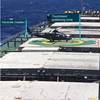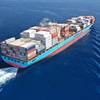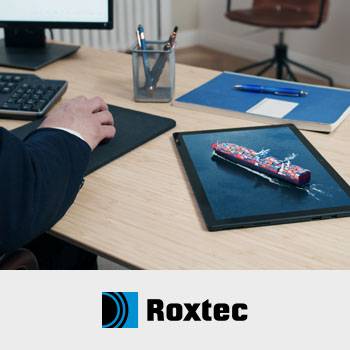By Mark Fry
International Yachtmaster Training and Deliveries
International Yachtmaster Training and Deliveries is the world's largest nautical college dedicated to the training of Megayacht crew. The megayacht industry has been expanding at a phenomenal rate over the last 5 to 10 years.
A megayacht, both sail or power, defined as any yacht over 100 ft., is the large toy of the financial elite and corporations worldwide. The demand for these vessels has so escalated that newbuilds are now booked as far in advance as four to five years for new project commencement. With the development of these newbuilds, so to has come a development of new standards for construction, safety, and manning. With the smallest of the world's top largest 200 yachts being 178 ft., and the largest over 400 ft., legislators and governments have taken note and action through the enforcement, enactment, and restructuring of laws to ensure the safety of these ships at sea.
In the forefront of all these new developments is the Maritime and Coastguard Agency (MCA), the United Kingdom's coast guard. With an estimated 80 percent of the world's fleet flagged under a Red Ensign, for example Cayman Islands, (primarily for tax and quality reasons), the U.K. government has taken an active and aggressive role in assuring the directives of the International Maritime Organization (IMO), under the auspices of the United Nations (U.N.), are fulfilled.
Previous U.K. legislation, mainly developed towards merchant shipping, proved impractical to both apply and enforce. Captains and engineers, with years of sea service, were unable to fulfill the necessary requirements for Certificates of Competency due to their lack of merchant vessel sea time and experience. Consequently, on December 18, 1998 the British Parliament enacted into law these new codes, the most relevant of which being "The Code of Practice for Commercial Yachts in Excess of 24 Meters."
These yachts, restricted to 12 paying passengers, can now be commanded by captains under a new Certificate of Competency, currently called "Deck Officer Class 4,"with a command endorsement restricted to 3000 gross tons, and 12 passengers. This Certificate of Competency is obtained by yachtsmen with a minimum of four years of industry experience, command experience, and approximately four months of intensive hands on training.
These yachtsman must complete courses in Business and Law, Stability and Construction, Sea Survival, Ship Board Medical Care, Navigation and Radar, Sea Survival, GOC/GMDSS, and a hands-on yacht command and handling module. Most of these modules reflect condensed or modified versions of standard Merchant Seaman Training. Upon successful completion of all the pre-requisites, the candidate must take a compulsory oral examination with the MCA.
In order to comply with STCW '95, and more accurately reflect Merchant Seaman training, effective February 1, 2002 (a date selected to coincide with the date of enforcement of STCW '95), the MCA manning committee is revising the training program. The expanded training will be over a five-year period with additional modules and three levels of certification: Officer of The Watch; Officer of the Watch with First Mate Endorsement; and Master of Yachts. An equivalent of a deck officers' training log will be completed, along with an additional oral exam after the first phase.
Provisions are currently in place for USCG Captains holding a 500T or 1600T license to complete a short training program and be issued a Certificate of Equivalent Competency (CEC). This opportunity is a window which may not last. Equivalencies are not readily available. Although numerous countries have like programs, many professing to uphold STCW standards, the MCA, in its continued mission to lead the global maritime industry in safety and quality, can rightly only accept those programs they are able to directly review and monitor. The reality of staffing to review and monitor fellow countries programs globally results in few equivalencies being issued.
The application of STCW '95 includes megayachts, and the compulsory one-week of training for all crew working onboard must be completed by February 1, 2002. This week of training includes seas survival, fire fighting, first aid, and social responsibilities.
The yachting committee, after some teething, has welcomed these changes, realizing the direct impact on the safety of vessels at sea. The endorsement of the large insurance agencies, and yacht charter brokers, has furthered the support of these new programs.
As always, the acceptance of merchant seaman with appropriate command endorsements is applicable to these yachts. The transition from a merchant position to yachting is not always as simple as it may appear. Yacht captains, in most circumstances, are the acting CEO of a floating five-star hotel. Owners are looking not only for competent seaman, but captains who also possess the skills to manage a crew dedicated to an owners' and guests' ultimate yachting experience. Recognizing or performing silver service, fine-tuning a Butler's presentation, coordinating a cocktail party for 150 at the Cannes Film Festival, or directing a guest to the Gucci store in Porto Cervo, only begins to describe the diversity of skills required beyond those of an "old salt" or the finest engineer.
Although salaries can be outstanding, it is not uncommon for captains to work 24 hours a day for months. Vacations become a luxury, not a right, and this lack of a personal life makes the profession impossible for many.
Megayachts are an exciting and growing part of our industry. Many merchant seaman have found an opportunity in this new sector. The advent and enforcement of these new training standards is a continued effort to increase the standard of safety on our seas.
Mark Fry is the founder and CEO of International Yachtmaster Training and Deliveries (IYTD). Mr. Fry is a former Naval Officer, and has 20 years experience in the megayacht industry from deckhand to through to examiner of Captains. He sits on the MCA committee which advises and develops manning policies for megayachts under MCA jurisdiction. His company, with global head quarters in Ft. Lauderdale, provides training on all levels for both Deck Officers and Engineers in the megayacht Industry. All courses at IYTD are approved by the MCA or/and are to STCW '95 standards. For further information, contact registration, or the Deck or Engineering division of IYTD at (954) 779-7764, or in the US at (888) 243-6011. Email: [email protected]. IYTD can be found on the World Wide Web at www.yachtmater.net.
Sponsored Content
LR - Fit for 55: Managing compliance and optimising operations

Use Roxtec seals, services and software

Subscribe for
Maritime Reporter E-News
Maritime Reporter E-News is the maritime industry's largest circulation and most authoritative ENews Service, delivered to your Email five times per week









